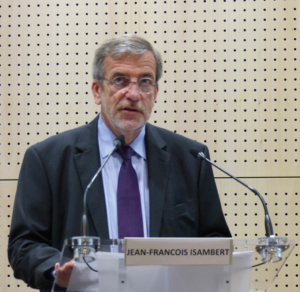
- What made you choose to run for the Presidency of AgriCord?
AgriCord is an alliance of 12 agri-agencies in 10 countries. These organizations are present in 47 countries. Each of them have multiple, different and complementary know-how, expertise, and competences. These agri-agencies are supported by producer organizations in their country wishing to seek out other producer organizations (POs) worldwide. They all aim to support producers to earn income from their work, to support their families and to contribute to supplying food in their country.
Our alliance allows us to meet aims of European and international organizations that want to engage with farmers’ world. It includes also promoting of various open farming, respecting the will of farmer men and women in all countries, listening to them and respecting the environment and nature around them.
I run for the Presidency of AgriCord, convinced that we could do better to support this alliance. The agri-agencies, like many organizations, have a tendency in operating in silos, sometimes ignoring what others are doing. As the President, I have it at heart to make this alliance to work as a real team. In this period of Euro 2016, one could say that each player plays well individually but it is about creating a real team which will do better than each individual alone.
- What are the main challenges of AgriCord in the coming years?
In my opinion the AgriCord alliance must have a real ambition. Everyone’s experiences must enrich the group and help it see beyond. To me, it seems important that each agri-agency is able to present the eleven other alliance members and future members. How to ensure that each knows a little bit better what the others are doing? This is what I wish to stimulate within the alliance.
Moreover, the donor conditions, themselves subject to conditions, will be increasingly demanding related to financing. The purpose is to them as light as possible with AgriCord proposed reporting. The evaluation of our actions is important, for ourselves at least as much as for our technical and financial partners.
The agri-agencies, as professionals in development, need to question the relevance of linking or comparing POs. The peer exchange is to be promoted and developed. In the field, these encounters amongst farmers create learning and progress. But at the level of development professionals, I am not sure that this exchange always takes place. Why not to apply it more to ourselves?
- Fert is one of the 12 agri-agency members of this alliance. What is in your opinion its main added-value?
Each agri-agency consists of people of high quality, passionate and committed to producer organizations worldwide. The main quality of Fert is the value of its people, their ability to understand the difficulties of farmers so that they can find solutions themselves to the problems they face, and to support them to the markets. Fert gives particular importance to the training of people (farmers and technicians), training in the broadest sense: establishment of technical institutes, training of youth, leaders or advisors … For me, it is important that the ownership of farmers of their achievements is encouraged and made visible. That is also where my ambition lies: to ensure that the alliance is at the service of farmers and their organizations, with the will to fight against poverty, and that it can promote gender equality and the recognition of the work of each others.


